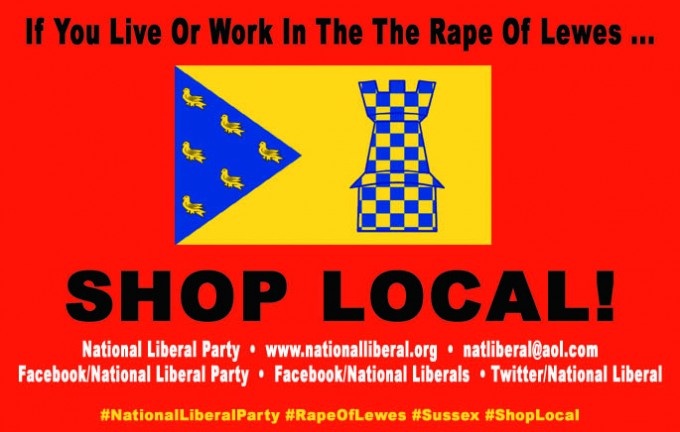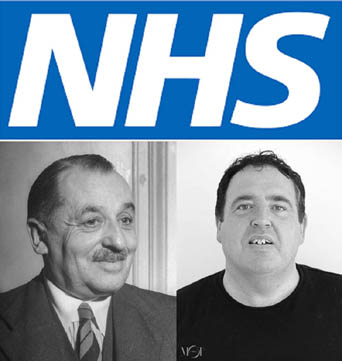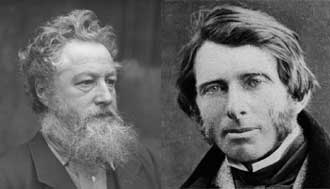From The Liberty Wall – National Liberal Trade Unionists – Restore The Guilds (Part 2)
WELCOME TO part 2 of Restore The Guilds. Written by Gary Dorrien for the Plough Quarterly,a US-based ‘magazine of stories, ideas, and culture to inspire faith and action’, the article – https://www.plough.com/en/ topics/justice/social-justice/economic-justice/restore-the-guilds – provides an excellent history of Guild Socialism (referred to as ‘Christian socialism’ in the article). This article should be read directly on from part 1: http://nationalliberal.org/from-the-liberty-wall-%e2%80%93-national-liberal-trade-unionists-%e2%80%93restore-the-guilds-part-1
As we’ve previously noted, we National Liberal Trade Unionists – NLTU – are neither of the ‘left’ nor the ‘right’. In fact, we feel that these terms are somewhat redundant as there’s barely a fag paper between the Tory ‘left’ & the Blairite/Social Democratic ‘right’ of the Labour Party. Indeed, who would’ve ever thought that any Tory Chancellor of the Exchequer – currently Rishi Sunak (1) – would be spending money like it was going out of fashion? (It’s just a shame that it’s taken Covid-19 to loosen the purse strings.)
We also view ourselves as ‘beyond class’ as we feel that to describe people solely by class is very restrictive. In fact, why should we effectively be forced to label ourselves according to the dictats of capitalism?
All of the above should make it very clear that the NLTU is interested in ‘alternative’ – and especially co-operative – economic systems. This is especially so when it can transcend the two traditional ‘sides’ of the economic equation – employers & employees. We feel that one way of doing this could be the introduction of a modern Guild system – Guilds, as described by the Encyclopaedia Britannica, being ‘an association of craftsmen or merchants formed for mutual aid and protection and for the furtherance of their professional interests’ (2).
As always, we invite our readers to share their thoughts when this article is reproduced on the NLTU Facebook site – https://www.facebook.com/groups/277840098977231/ – or the National Liberals Facebook site https://www.facebook.com/groups/52739504313/ It goes without saying that there are no links between Gary Dorrien, Plough Quarterly, the NLTU and the National Liberal Party. We’d also like to point out that whilst the article is written from a Christian perspective, the NLTU and NLP welcome members & supporters from all religions and none. Please note that the NLTU has kept the original US spellings and phrases as they are.
.
Restore The Guilds – What today’s labor unions, democratic socialists, and mutual aid societies might learn from the colorful history of Christian socialism in Britain

(Top left) Robert Owen (1771–1858) was a Welsh manufacturer turned social reformer. An early advocate of utopian socialism, he put his ideas into practice with the establishment of his New Lanark mills in Lanark, Scotland. A visionary, he instituted social & industrial welfare reforms including the opening of Britain’s first infant school. (Top right) Charles Fourier (1772–1837) was a French utopian socialist who believed in a cooperative form of society where workers would live in communities he called “phalanxes.” He was also an early supporter of women’s rights. (Bottom left) George Douglas Howard Cole (1889-1959) was a noted anti-fascist libertarian socialist who developed & popularised the theory of guild socialism. He formed the National Guilds League in 1915 and published several books on guild socialism as well as books about Robert Owen & William Morris. (Bottom right) Arthur Penty (1875–1937) was influenced by William Morris & John Ruskin and is credited with formulating Christian socialism based on the Guilds. A distributist, Penty also published Restoration of the Guild System in 1906.
SOCIALISM WAS ORIGINALLY A VISION that society could be organized as a cooperative community. In the 1820s, Charles Fourier in France and Robert Owen in England championed the idea of an economy based on cooperation and community. Instead of pitting workers against each other, a cooperative mode of production and exchange would allow them to work for each other. Fourier and Owen founded socialist movements that dreamed of replacing the state, or restricting it, or enlisting it to support producer cooperatives. Debates over these issues roiled the socialist movement from the beginning and sundered the first movement for Christian socialism.
Christian socialism began in the 1840s with the Anglican trio of Frederick Denison Maurice, John Ludlow, and Charles Kingsley. Maurice, a theologian and cleric, argued that cooperation is the moral law of the divine moral order. Socialism reflects the divine order by creating a cooperative society. Fatefully, the first Christian socialists clashed over consumer cooperatives, the state, and cooperative syndicates. Why should producer cooperatives be favored over consumer cooperatives? Should the state finance producer cooperatives? Are labor syndicates inevitably divisive and radical? Debates over these issues thwarted the first wave of Christian socialism.
The mighty second wave in Britain, beginning in the 1880s, was mostly Anglo-Catholic. Many Anglican socialists were stubbornly cooperative in the Owen and Maurice mode, some joined the Fabian movement after it arose in 1884, some joined the Christian Social Union reformers who came out of Oxford, some gave highest priority to socializing land, and many joined the workers party movement after it arose in 1893. But Christian socialism had an ethical wellspring that qualified its commitment to these ideologies. Christian socialists were committed to an ethic of equality, freedom, cooperative community, and divine love. No ideology, whether Fabian or Syndical or Social Unionist or Marxist, was more binding than these religious and ethical convictions.
(1) Britain’s Reactionary Racists React! http://nationalliberal.org/britain%e2%80%99s-reactionary-racists-react
(2) Encyclopaedia Britannica https://www.britannica.com/topic/guild-trade-association
• IF YOU want to help the National Liberal Trade Unionists promote a sensible non-socialist (but still anti-capitalist) form of trade unionism please contact us via natliberal@aol.com and/or visit our Facebook site https://www.facebook.com/groups/277840098977231/
• ALSO Check out: Twitter @National Liberal
Date: November 6, 2020
Categories: Articles, Liberty Wall




































